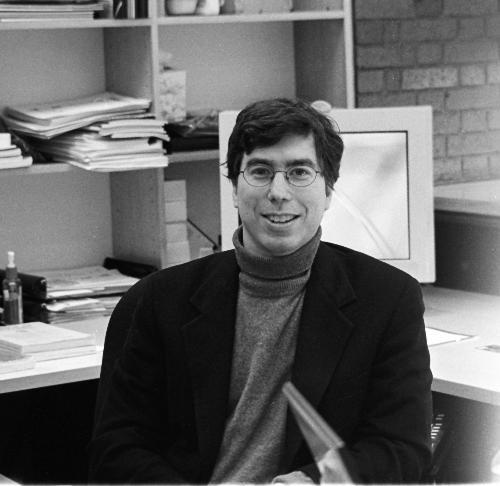
News
Pro-Palestine Encampment Represents First Major Test for Harvard President Alan Garber

News
Israeli PM Benjamin Netanyahu Condemns Antisemitism at U.S. Colleges Amid Encampment at Harvard

News
‘A Joke’: Nikole Hannah-Jones Says Harvard Should Spend More on Legacy of Slavery Initiative

News
Massachusetts ACLU Demands Harvard Reinstate PSC in Letter

News
LIVE UPDATES: Pro-Palestine Protesters Begin Encampment in Harvard Yard
Professor To Present Case to Supreme Court

The U.S. Supreme Court agreed on Tuesday to hear a landmark copyright protection case presented by Harvard Law School (HLS) Professor Jonathan Zittrain.
The case, Eldred v. Ashcroft, is the first time the Court has been asked to determine the extent to which the public can access hundreds of thousands of books, songs and movies via digital libraries or over the Internet.
The Court hearing is essential to settling the constitutional issue of Congress’ authority to extend copyright terms on creative products, according to Zittrain, who is co-counsel for the plaintiffs and the Berkman assistant professor of entrepeneurial legal studies at HLS.
The lead plantiff, nonprofit Internet publisher Eric Eldred ’64-66, argued that Congress overstepped its boundaries when it sided with writers and other creators by passing a law in 1998 that retroactivitely extended copyright protection by 20 years.
The 1998 copyright changes, known as the Sonny Bono Copyright Term Extension Act (CTEA), meant that works that had been expected to enter the public domain were prevented from becoming freely available on the Internet.
For example, Walt Disney’s Mickey Mouse, a product worth $8 billion, was copyrighted in 1928 and would have entered the public domain in 2004, but it remains protected under CTEA.
Eldred argued the law interfered with his ability to run a free Internet library that offered the text of about 50 classsic books, poems and essays in the public domain.
“Do I have the right to publish on my website public domain books or will books printed after 1922 remain under copyright forever?” he asked.
Paul Aiken, executive director of the Authors Guild, which represents published book authors, explained that copyright protection is necessary to compensate writers or “they will be forced to turn to other lines of work.”
However, Zittrain argued that the CTEA is excessive since it extends copyrights on numerous works whose authors are dead, and therefore no longer receiving royalties. He said the CTEA has removed “very old” and valuable work—like some of Robert Frost’s poetry—from the public domain.
“The existence of the Internet opens up possibilities for lots of opportunities for things that had otherwise lost steam,” Zittrain said.
While the Constitution does authorize Congress to give authors and inventors exclusive rights to their works for a “limited” time, that period has gotten longer over the years, he said.
Copyright protection is meant to last only a “period of time—shorter than the period of time when it’s utterly useless to be freely used by the public for whatever value possible,” Zittrain said.
The case, which will be heard by the Court in October, has drawn extensive attention for its potentially wide-spread effects.
“The Supreme Court case is about freeing information that would be otherwise inaccessible,” said Brewster Kahle, director and co-founder of the nonprofit Internet Archive, an on-line repository of historical scholarly work.
—Staff Writer Anat Maytal can be reached at maytal@fas.harvard.edu.
Want to keep up with breaking news? Subscribe to our email newsletter.
